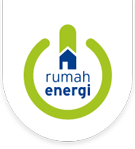Water and Waste Management Training to Create a Green Cooperative
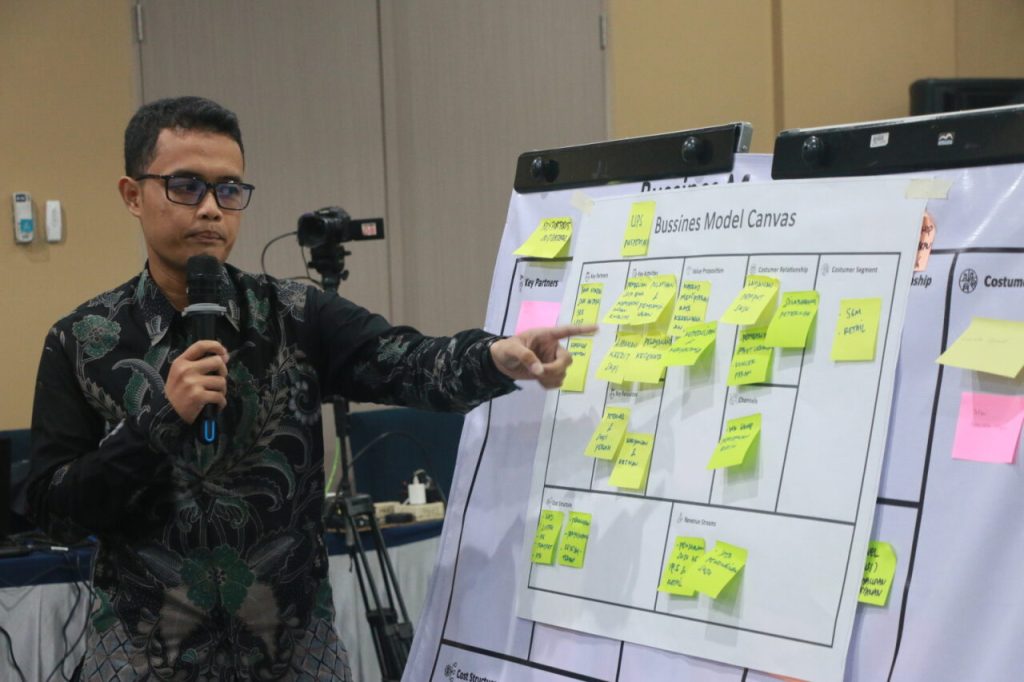
Yayasan Rumah Energi Foundation (YRE) continues to intensify efforts to encourage cooperatives as climate change agents, one of which is through the Green Cooperative Adaptation Readiness (GENCAR) project. In the first phase, project implementation from July to December 2023, to increase the institutional capacity of Cooperatives in Good Cooperative Governance and Gender Equality & Social Inclusion (GESI). These two topics have been implemented by the four assisted cooperatives through improving institutional documents (SOP, SOM, AD-ART, Strategic Plan) submitted to the Pre-RAT and RAT mechanisms.
The series of training and mentoring activities for the four main cooperatives targeted by the project has now entered its second phase. At the beginning of May, Water and Waste Management Technology Best Practices training was provided, which also invited other cooperatives and was carried out for two days using a hybrid method. The activity entitled Training on the Practical Application of Appropriate and Environmentally Friendly Technology for Access to Clean Water and Waste Management for Institutional Businesses and Cooperative Members was held on 3 & 4 May 2024 in Salatiga, Central Java.
Eddy Sulistiyo, Head of the Central Java Cooperative Service Eddy Sulistiyo Bramiyanto, SE, MM opened the activity by explaining the context of cooperatives. He stated that cooperatives form to provide benefits to members, and one of the ideal functions was to control prices. Product downstream is important to increase the value of a commodity, so production cooperatives should do this.
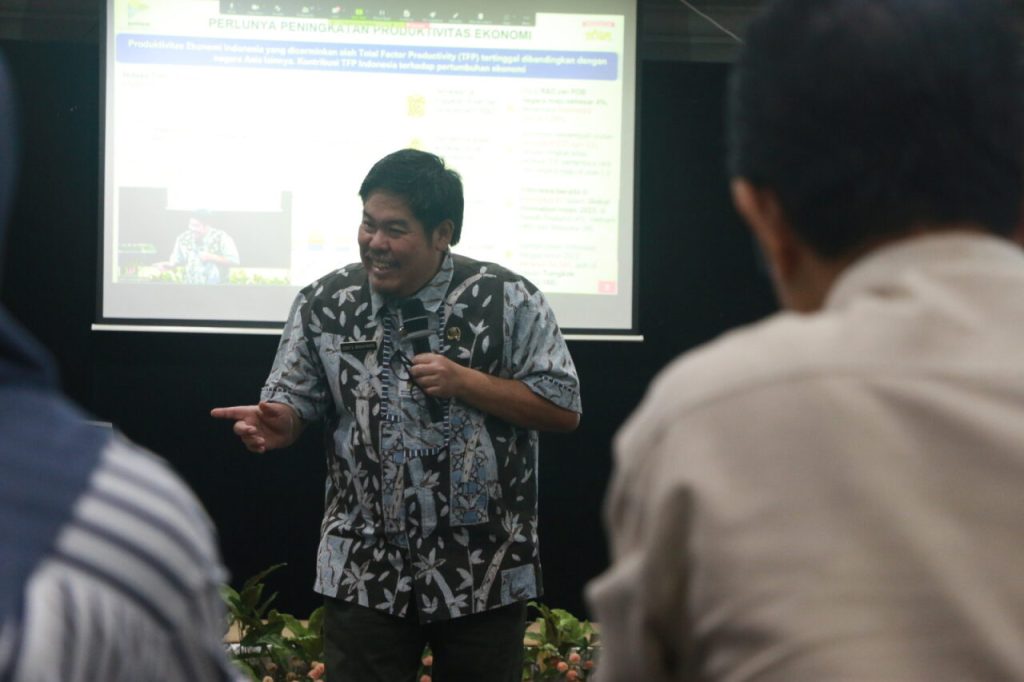
“There are approximately 180,000 active cooperatives in Indonesia, with a turnover of more than 300 trillion. Like it or not, it must be acknowledged that cooperatives have a significant role in driving the country’s economy, a huge potential that should be maintained. Therefore, the efficiency of operational costs must be considered. On the other hand, the cooperative governance system is more likely to function as a social engineering medium. For example, in Tuntang, there is a cooperative whose business unit processes organic waste into compost. Imagine if three to four cooperatives were operating in this field it’s going to be a problem again.”
This training also presents speakers who work in the environmental and business fields. Anang Setiawan and the team from Indonesia Urban Water Sanitation and Hygiene (IUWASH) is a program to increase access to safe drinking water and sanitation services in Indonesia supported by the United States Government through USAID. He explained several problems related to water resources. According to several mass media, many springs have died in Indonesia, but on the other hand, many floods have occurred. Ideally, what provides water supply for rivers is groundwater. But today, our rivers get more of their supply from surface water. This means that a lot of water is not absorbed by the ground and directly runs off into rivers. Climate change also worsens natural conditions.
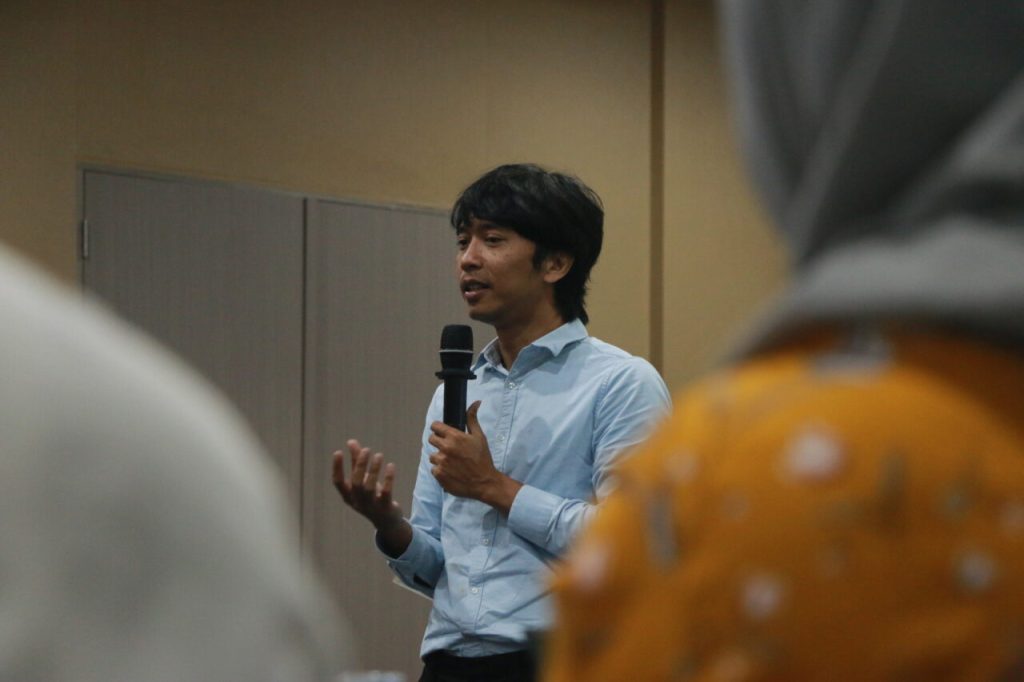
“Climate changes can now be felt directly, as can be seen from the shorter rainy periods but the same rainfall. A simple analogy is that 1000 liters of water should be poured in a week, this is poured out in just one day. On the other hand, the soil’s ability to absorb water decreases due to concreting, development, and so on. This makes the quantity of rainwater run-off even higher, making conditions even more extreme.”
Anang then added that various ways can be used to conserve water by the community, such as building infiltration wells, reservoirs, earth belt terracing, and biopores. In all conservation that is carried out, the aim is to prevent water from running directly into the river, as much as possible to ensure that the water does not go directly into the river, but instead seeps into the ground.
The second training session was guided by Mega Angraini and the team from the Bintari Foundation. The Bintari Foundation itself is a national non-governmental organization that operates in the field of environmental protection and sustainable development. In this session, participants were divided into two groups who were assigned to classify and sort various types of waste, such as organic waste, inorganic waste, and also residues. Next, participants were given knowledge about TPS3R management by Pak Ali, one of the practitioners who runs the TPS3R Pedalangan Bersinar located in Semarang. Not only sorting, TPS3R also processes waste into new commodities that have economic value. Then, apart from being a waste management installation, TPS3R is also a learning space for students to learn to sort waste to prepare a generation that understands and is aware of the dangers of waste. Until now, the TPS3R managed by Pak Ali can manage approximately 40 tons of waste per month.
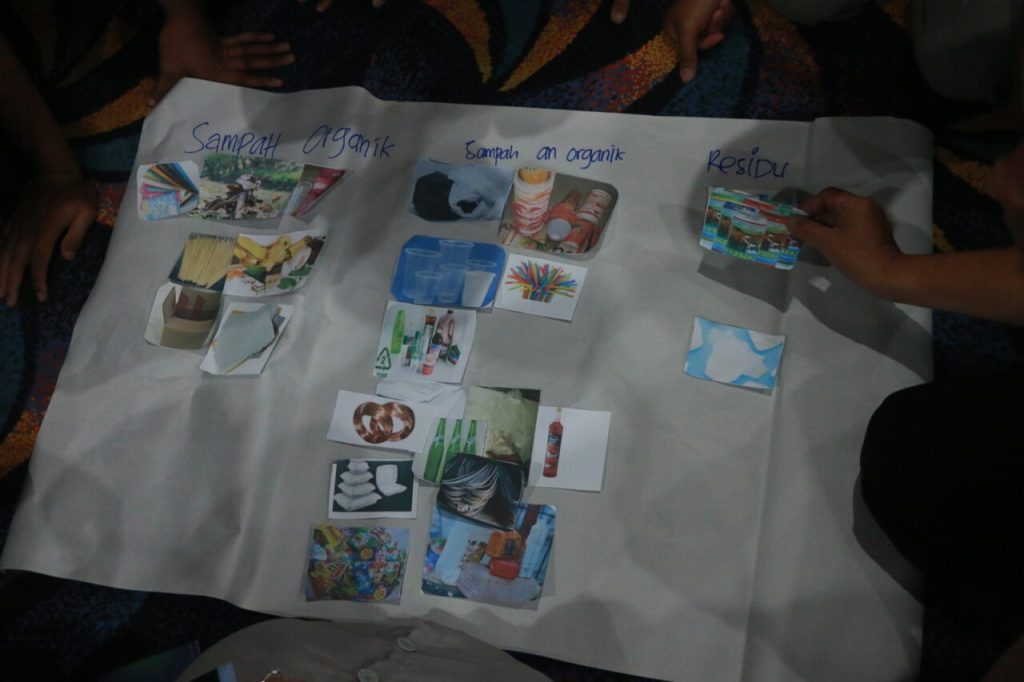
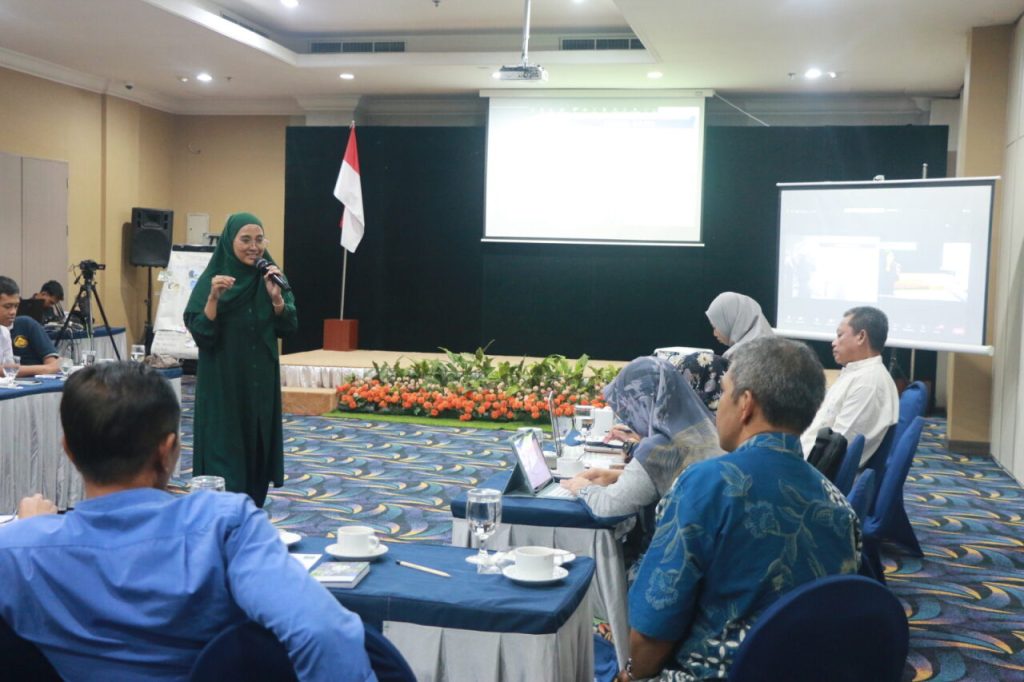
Based on the experience-sharing session and discussion session, one of the important points that needs to be underlined is the strategy for encouraging government policies at the village level. Often village governments do not realize that waste can generate Regional Original Income (PAD) if managed properly. Policy advocacy to the local governments has been carried out by Bintari generally using a business approach strategy. So, the circular economy can encourage aspects of environmental sustainability, in this case, the management of waste that has economic value.
After participants get a complete picture of Water and Waste Management, the next important step is how to apply this knowledge to a Business Model Canvas (BMC) guided by Natalia Sari Pudjiastuti, Economics Teaching Staff at Sunan Muria University Semarang, Cooperative Practitioner and Cooperative Development Expert Consultant and MSME Central Java Province UKM Cooperative Service. It is hoped that this ongoing training can encourage cooperatives to act as agents of change and can become an example or case study for the Ministry of Cooperatives & SMEs, the Ministry of the Environment, the Fiscal Coordinating Agency of the Ministry of Finance, the Environmental Fund Management Agency (BPDLH) and related agencies in Provincial and Regency/City levels in implementing the Green Cooperatives concept.
